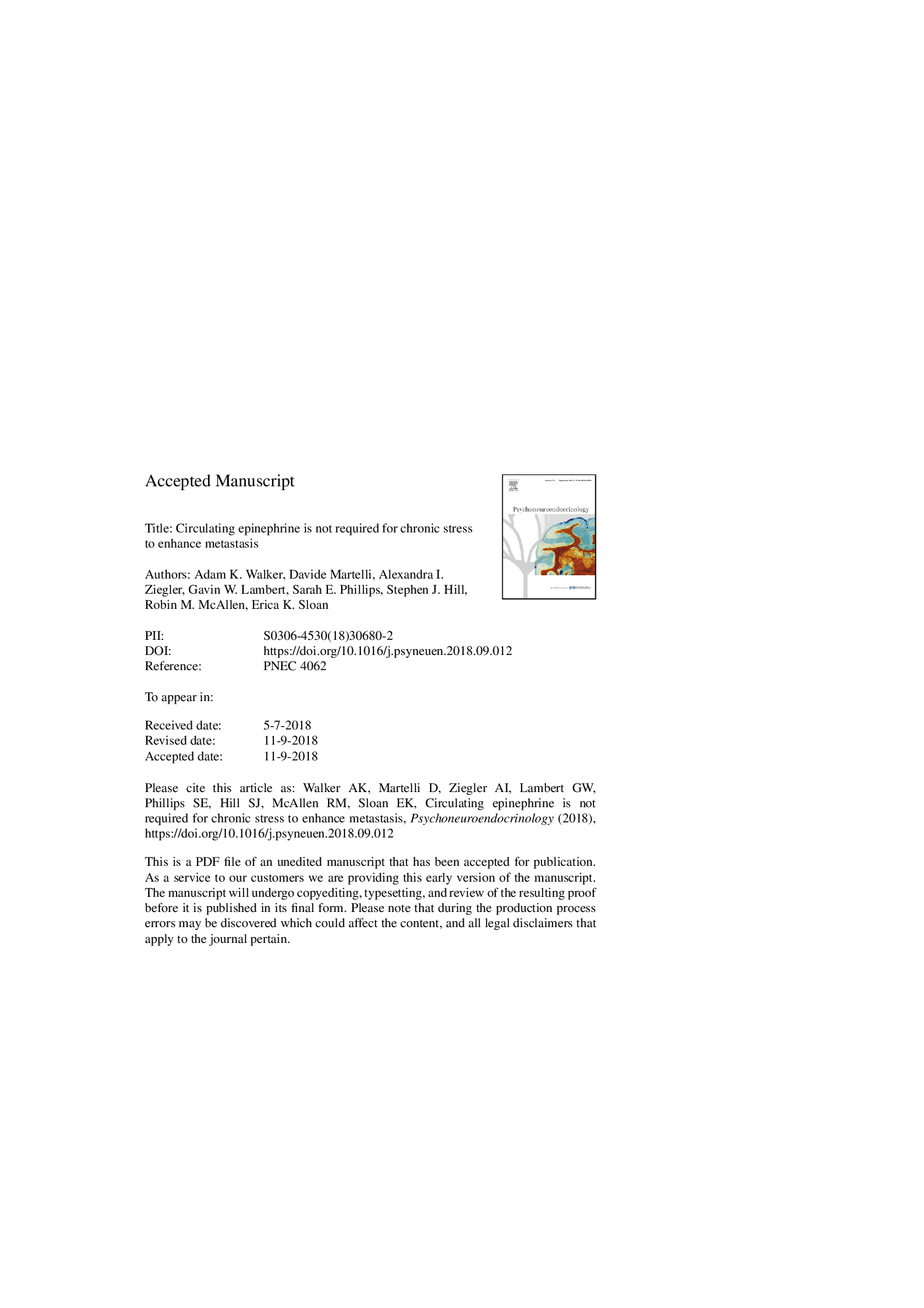| Article ID | Journal | Published Year | Pages | File Type |
|---|---|---|---|---|
| 11031664 | Psychoneuroendocrinology | 2019 | 23 Pages |
Abstract
Signaling through β-adrenergic receptors drives cancer progression and β-blockers are being evaluated as a novel therapeutic strategy to prevent metastasis. Orthotopic mouse models of breast cancer show that β-adrenergic signaling induced by chronic stress accelerates metastasis, and that β2-adrenergic receptors on tumor cells are critical for this. Endogenous catecholamines are released during chronic stress: norepinephrine from the adrenal medulla and sympathetic nerves, and epinephrine from the adrenal medulla. β2-adrenergic receptors are much more sensitive to epinephrine than to norepinephrine. To determine if epinephrine is necessary in the effects of stress on cancer progression, we used a denervation strategy to eliminate circulating epinephrine, and quantified the effect on metastasis. Using both human xenograft and immune-intact murine models of breast cancer, we show that circulating epinephrine is dispensable for the effects of chronic stress on cancer progression. Measured levels of circulating norepinephrine were sufficiently low that they were unlikely to influence β2-adrenergic signaling, suggesting a possible role for norepinephrine release from sympathetic nerve terminals.
Related Topics
Life Sciences
Biochemistry, Genetics and Molecular Biology
Endocrinology
Authors
Adam K. Walker, Davide Martelli, Alexandra I. Ziegler, Gavin W. Lambert, Sarah E. Phillips, Stephen J. Hill, Robin M. McAllen, Erica K. Sloan,
